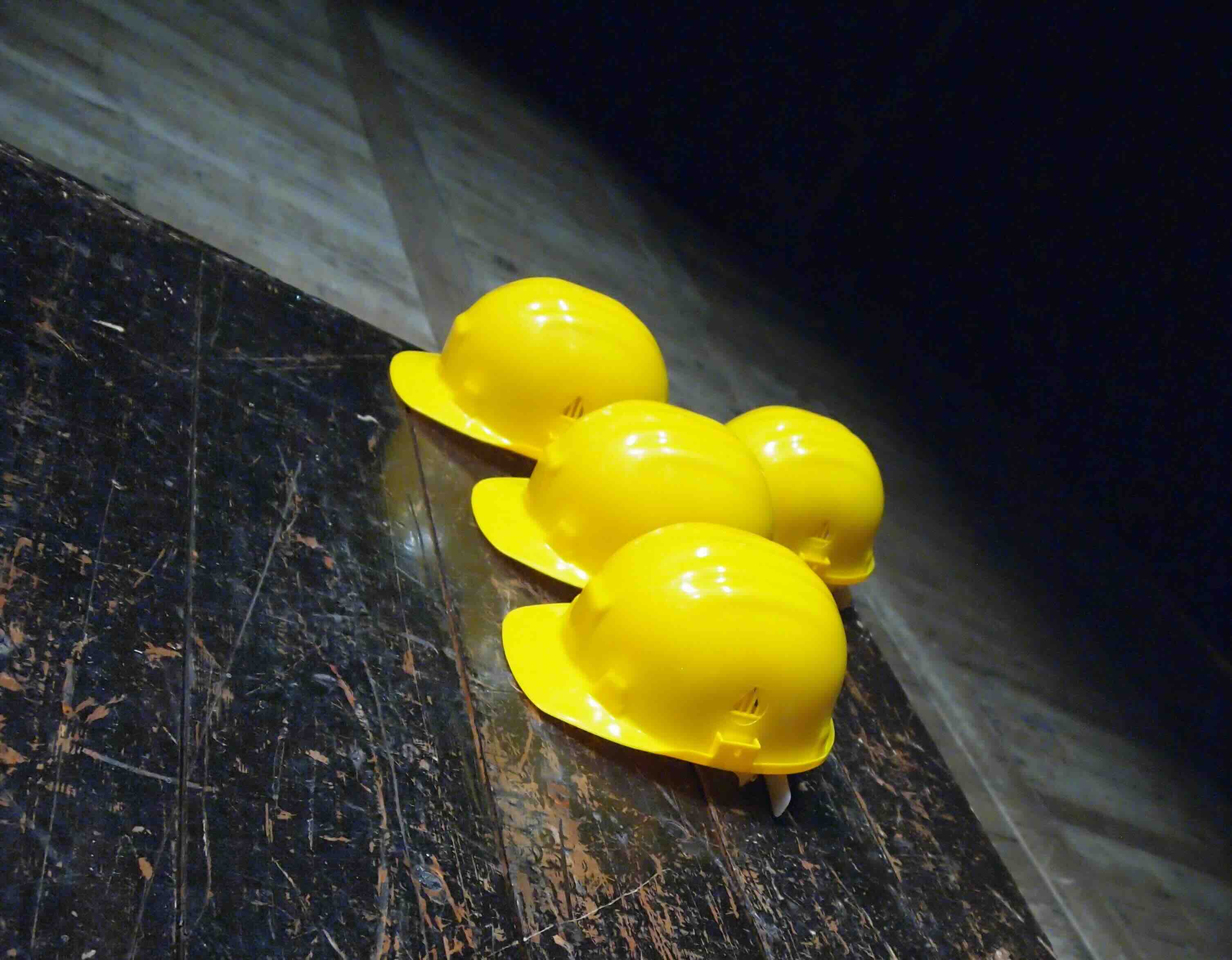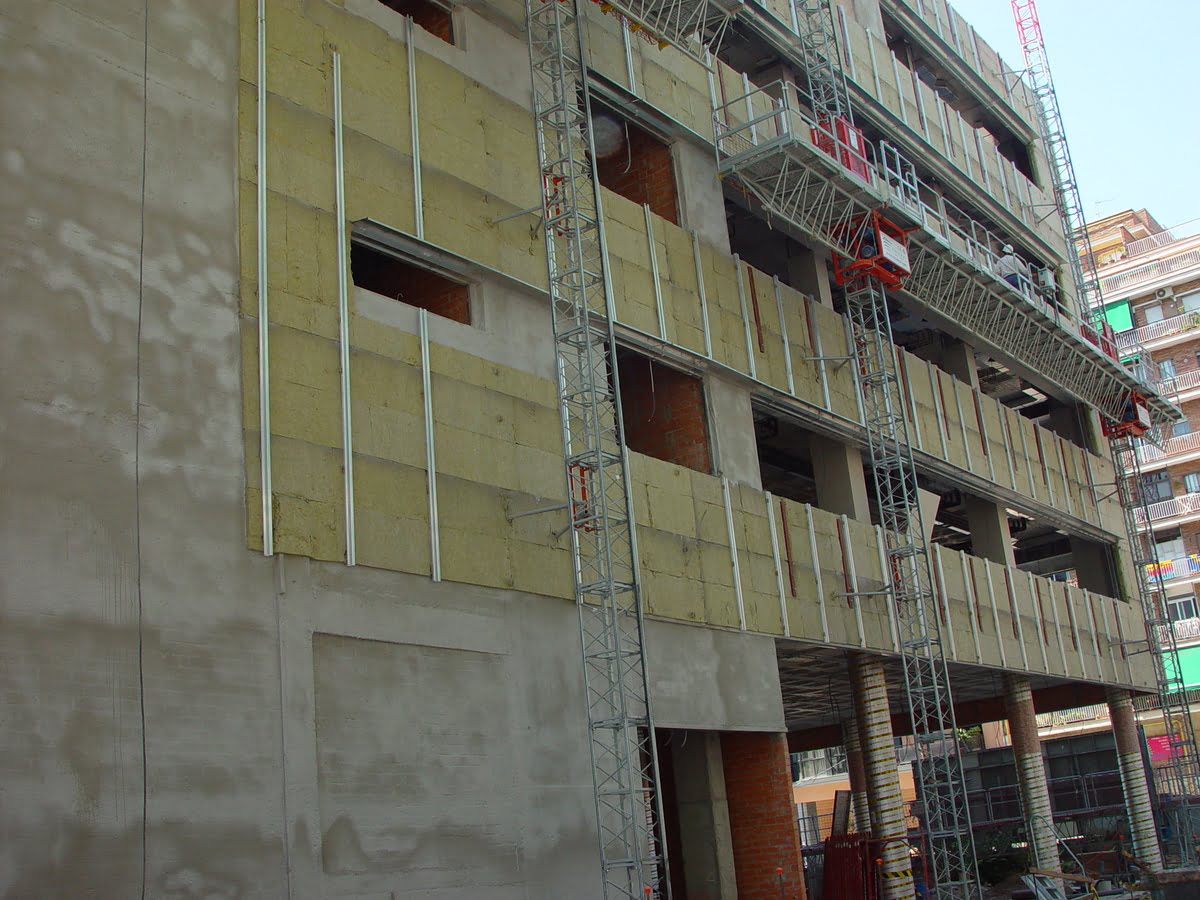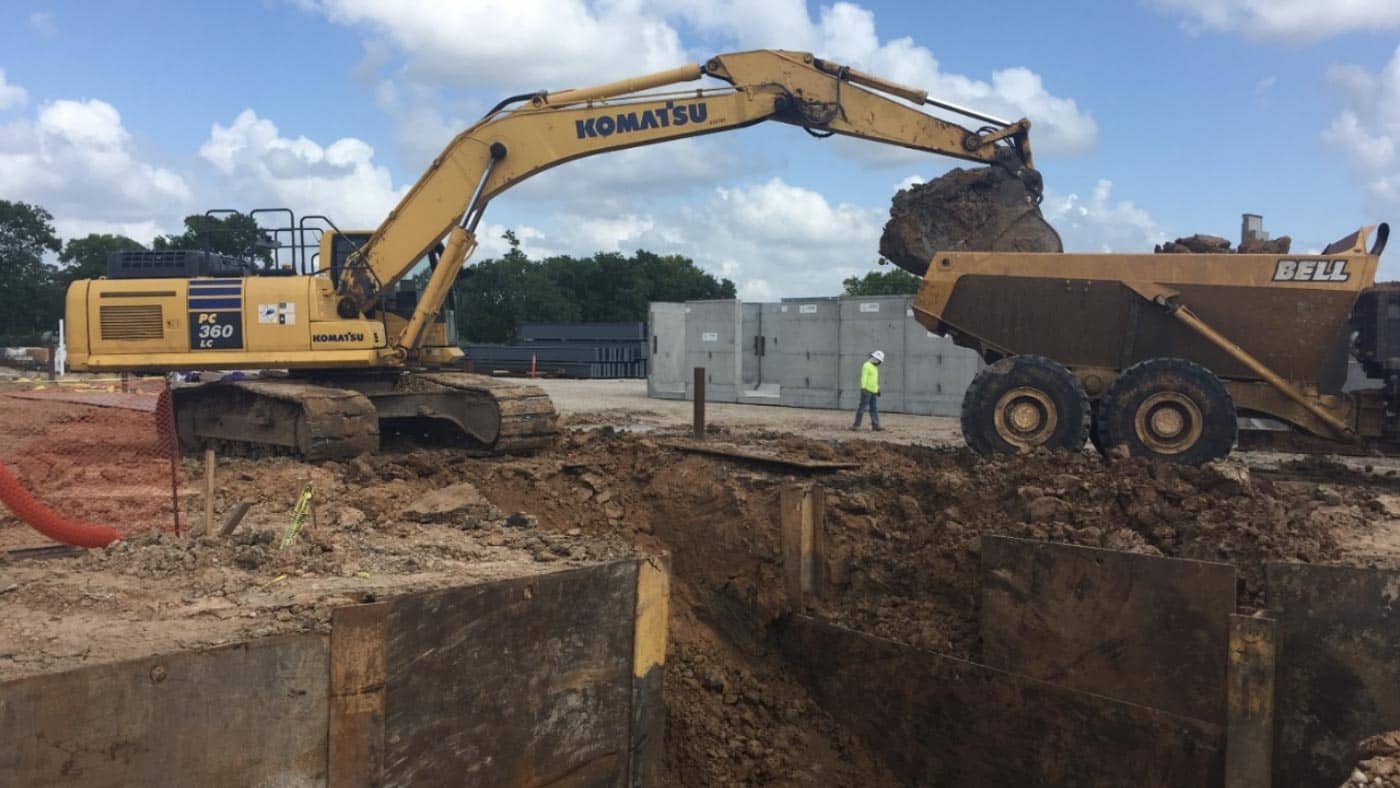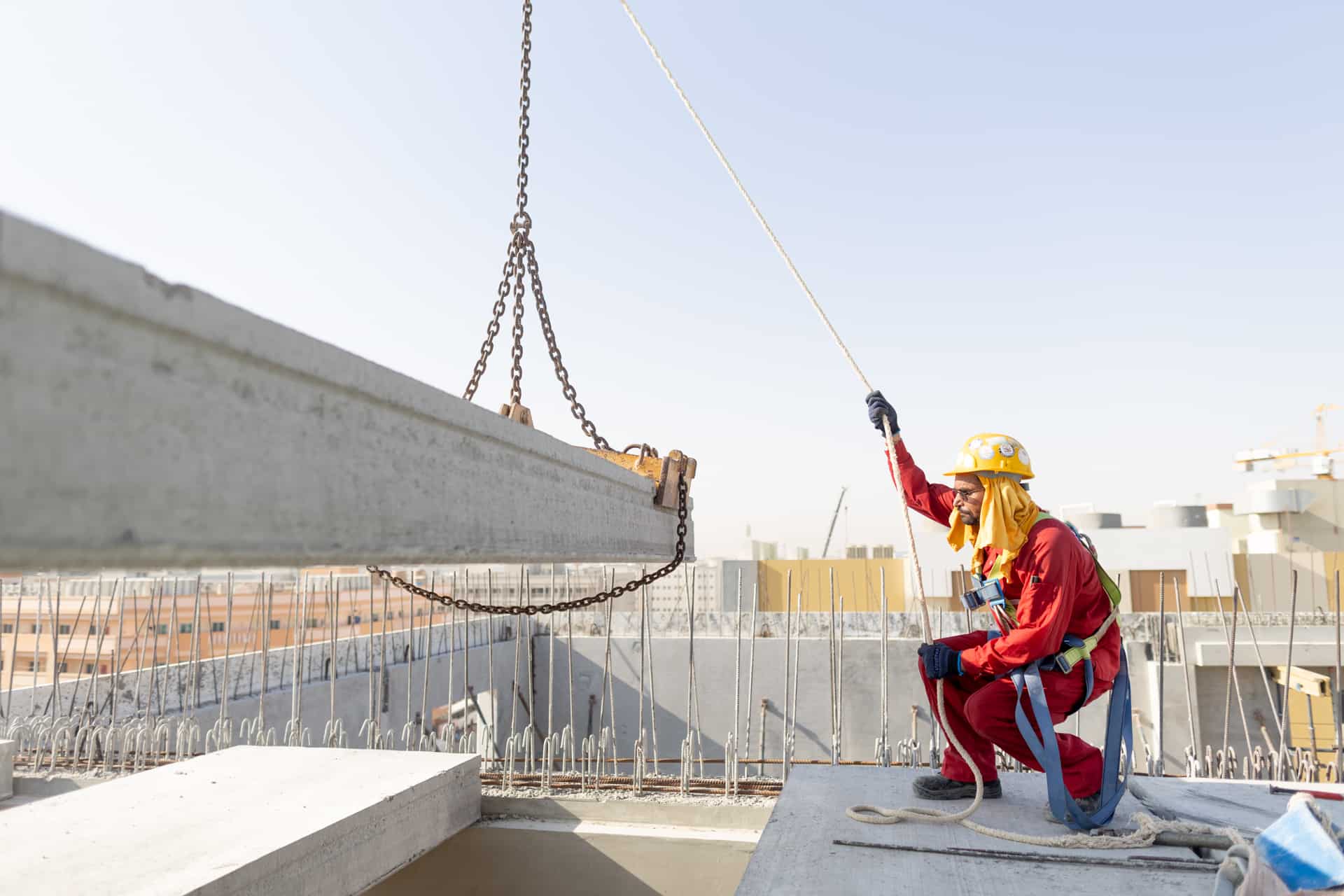Home>diy>Building & Construction>What Does Prevailing Wage Mean In Construction


Building & Construction
What Does Prevailing Wage Mean In Construction
Modified: January 6, 2024
Learn what prevailing wage means in the context of building construction. Gain insights into how it impacts labor costs and worker compensation.
(Many of the links in this article redirect to a specific reviewed product. Your purchase of these products through affiliate links helps to generate commission for Storables.com, at no extra cost. Learn more)
Introduction
Welcome to the world of construction, where buildings rise from the ground and dreams take shape. In this dynamic industry, it’s essential to understand the various aspects that contribute to the successful completion of a project. One crucial factor that often comes into play is prevailing wage. But what exactly does prevailing wage mean in construction?
Prevailing wage refers to the hourly rate of pay, including benefits, that is paid to construction workers on public works projects. It is set by the government, typically at the state or federal level, and is meant to ensure fair compensation for labor in the construction industry. Prevailing wage laws were established to protect workers from being underpaid and to maintain a level playing field in the construction sector.
Understanding prevailing wage in construction requires delving into its definition, purpose, determination, and compliance. This article will provide a comprehensive overview of prevailing wage laws, their benefits, criticisms, and the impact they have on construction projects.
Key Takeaways:
- Prevailing wage laws ensure fair compensation for construction workers on public projects, attracting skilled labor, promoting quality construction, and fostering fair competition. Despite challenges, they play a crucial role in shaping a sustainable construction sector.
- Compliance with prevailing wage regulations involves accurate wage determinations, diligent record-keeping, and proper payment of wages and benefits. While criticisms exist, prevailing wage laws continue to contribute to a stable and equitable construction industry.
Definition of Prevailing Wage in Construction
Prevailing wage, in the context of construction, refers to the minimum wage that must be paid to workers on public works projects. These projects are typically funded by government entities, such as federal, state, or local governments. The prevailing wage rate is determined based on the locality where the construction project takes place and the specific trade or occupation of the workers involved.
The prevailing wage rate includes not only the basic hourly wage but also fringe benefits, such as healthcare, retirement, and other supplementary payments. These benefits are typically established by collective bargaining agreements in the construction industry and are meant to ensure that workers are provided with fair compensation.
The purpose of prevailing wage laws is to promote fair wages for construction workers, reduce labor exploitation, and maintain a level playing field in the industry. By setting a minimum wage standard, these laws prevent contractors from undercutting wages to gain a competitive advantage, thus protecting workers from being underpaid.
It is important to note that prevailing wage laws only apply to public works projects, where government funding is involved. Private construction projects are not subject to prevailing wage requirements unless they receive government subsidies or incentives.
Prevailing wage rates are established through surveys conducted by government agencies or through data collected from similar projects in the area. These rates are updated periodically to reflect changes in market conditions and labor trends. The prevailing wage rates are typically published by the government entity responsible for enforcing labor laws and are made available to contractors and workers.
By adhering to prevailing wage laws, contractors ensure that they compensate their workers fairly and meet the requirements set forth by the government. Contractors typically include provisions for prevailing wage compliance in their bid documents and subcontract agreements to ensure that all parties involved in the project fulfill their obligations.
Purpose of Prevailing Wage Laws
The purpose of prevailing wage laws in the construction industry is multifaceted. These laws serve several important functions aimed at protecting workers, promoting fair competition, and maintaining quality in public works projects.
One of the primary purposes of prevailing wage laws is to ensure that construction workers are paid fair wages for their labor. By establishing minimum wage rates that include fringe benefits, prevailing wage laws help prevent exploitation and ensure that workers receive compensation that reflects the prevailing rates in their respective trades. This helps to improve the overall standard of living for construction workers and contribute to economic stability.
Prevailing wage laws also promote workforce productivity and job stability. By setting a minimum wage standard, these laws help attract skilled and experienced workers to public works projects. This, in turn, enhances the quality and efficiency of construction work, ultimately benefiting the public. Additionally, the stability provided by prevailing wage laws helps create a pipeline of skilled workers who are more likely to pursue long-term careers in the construction industry.
Furthermore, prevailing wage laws work to level the playing field in the construction industry. By requiring contractors to pay the same wages and benefits, these laws prevent contractors from gaining a competitive advantage by engaging in “low-bid” tactics. This promotes fair competition and encourages contractors to differentiate themselves based on factors such as quality, safety standards, and project management capabilities.
Another important purpose of prevailing wage laws is to maintain the quality of public works projects. By ensuring that construction workers are adequately compensated, these laws help attract and retain skilled artisans, tradespeople, and other professionals. This, in turn, promotes craftsmanship and expertise, leading to the construction of well-built, long-lasting structures.
Beyond the direct benefits to workers, prevailing wage laws also have positive ripple effects on the economy. By providing construction workers with fair wages, these laws stimulate consumer spending, leading to increased economic activity. Additionally, the availability of higher wages often attracts more workers to the construction industry, helping to alleviate labor shortages and boost job creation.
In summary, prevailing wage laws serve the purpose of protecting workers, promoting fair competition, maintaining quality in public works projects, and contributing to overall economic prosperity. By establishing minimum wage standards that include fringe benefits, these laws ensure that construction workers are compensated fairly for their labor, leading to a more stable and sustainable construction industry.
How Prevailing Wage is Determined
Prevailing wage rates in the construction industry are determined through various methods, depending on the jurisdiction and type of project. The goal is to establish rates that reflect the standard wages and benefits paid to workers in a specific trade and locality. Here are some common approaches used to determine prevailing wage:
- Surveys: One method used to determine prevailing wage rates is through surveys conducted by government agencies. These surveys collect data from contractors, unions, and other industry stakeholders to assess the wages and benefits typically paid in the area. Surveys may also consider industry-specific factors, such as skill levels, experience, and job classifications.
- Collective Bargaining Agreements: Prevailing wage rates can also be based on the wages and benefits established in collective bargaining agreements (CBAs) within the construction industry. CBAs are negotiated between labor unions and contractors or employer associations and often cover specific trades or occupations. These agreements set standards for wages, benefits, and working conditions, which can serve as a basis for determining prevailing rates.
- Comparable Projects: Prevailing wage rates can be determined by analyzing wages and benefits paid on similar construction projects in the area. This approach looks at completed projects that are of a similar size, scope, and complexity. The wages and benefits paid on these projects are then used as a benchmark for establishing prevailing rates on future projects.
- Industry Data: Prevailing wage rates may also be based on industry data collected from various sources, such as government agencies, trade associations, labor unions, and contractor organizations. This data includes information on wages, benefits, job classifications, and prevailing practices within the construction industry. It provides valuable insights into prevailing wage rates for different trades and occupations.
Once the prevailing wage rates are determined, they are typically published by the government agency responsible for enforcing labor laws. Contractors and workers can access this information to ensure compliance with prevailing wage regulations.
It’s important to note that prevailing wage rates can vary depending on the location and specific trade or occupation. Rates may differ between regions, cities, or even within different counties of the same state. Additionally, prevailing wage rates may be periodically adjusted to account for changes in market conditions, inflation, or other economic factors.
Overall, the determination of prevailing wage rates involves a combination of surveys, collective bargaining agreements, comparable projects, and industry data. These methods aim to establish fair and reasonable wages that reflect the prevailing standards in the construction industry.
Benefits of Prevailing Wage in Construction
Prevailing wage laws in the construction industry offer several benefits to workers, contractors, and the public as a whole. These laws help promote fair compensation, ensure quality work, and create a level playing field. Here are some key benefits of prevailing wage:
- Fair Compensation for Workers: Perhaps the most significant benefit of prevailing wage laws is that they ensure construction workers are paid fair wages for their labor. By setting minimum wage rates that include fringe benefits, these laws prevent underpayment and ensure that workers are compensated at a level that reflects industry standards. This helps improve the standard of living for construction workers and fosters a sense of fairness in the industry.
- Attracting Skilled Workers: Prevailing wage laws help attract skilled and experienced workers to public works projects. By offering fair wages and benefits, these laws incentivize workers to pursue careers in construction and contribute their expertise to government-funded projects. This enhances the overall quality and efficiency of construction work, leading to better outcomes for both workers and the public.
- Stable Workforce: Prevailing wage laws promote job stability in the construction industry. By offering competitive wages and benefits, these laws help create a more stable and committed workforce. Workers are more likely to stay in the industry and pursue long-term careers, leading to a consistent supply of skilled labor. This stability benefits contractors, as they can rely on a dependable workforce for their projects.
- Quality Construction: Prevailing wage laws contribute to the quality of public works projects. By ensuring that workers are adequately compensated, these laws attract skilled and experienced artisans, tradespeople, and professionals. This leads to the construction of well-built and durable structures that meet high standards of craftsmanship. Quality construction not only benefits the public but also reduces the need for future repairs and maintenance.
- Fostering Fair Competition: Prevailing wage laws create a level playing field in the construction industry. By mandating that all contractors pay the same wages and benefits, these laws prevent contractors from gaining a competitive advantage through low-wage practices. This promotes fair competition based on factors such as quality, safety standards, and project management capabilities, rather than undercutting wages to secure bids.
- Economic Stimulus: Prevailing wage laws contribute to economic stimulation on both a local and national level. By ensuring that construction workers are paid fair wages, these laws generate increased consumer spending within the community. This, in turn, leads to economic growth and supports local businesses. Additionally, prevailing wage laws attract more individuals to the construction industry, alleviating labor shortages and creating job opportunities.
In summary, prevailing wage laws provide a range of benefits in the construction industry. They ensure fair compensation, attract skilled workers, promote job stability, contribute to quality construction, foster fair competition, and stimulate the economy. By establishing a standard for wages and benefits, prevailing wage laws play a crucial role in building a sustainable and equitable construction sector.
Read more: What Does Turnkey Mean In Construction
Criticisms and Challenges of Prevailing Wage Laws
While prevailing wage laws in the construction industry have their benefits, they are not without criticism and face several challenges. Some of the common criticisms and challenges include:
- Increased Costs: One of the main criticisms of prevailing wage laws is that they can lead to increased construction costs. The requirement to pay higher wages and provide comprehensive benefits can place financial burdens on contractors, especially smaller businesses or those operating on tight budgets. Critics argue that these increased costs can make it more challenging for contractors to compete and ultimately result in higher project costs for taxpayers.
- Potential for Wage Inflation: Opponents of prevailing wage laws argue that they can contribute to wage inflation in the construction industry. Since prevailing wage rates are primarily determined based on unionized labor or established collective bargaining agreements, they may not accurately reflect the market rates for certain trades or occupations. This, in turn, can lead to artificially inflated wages, distorting the labor market.
- Administrative Burden: Complying with prevailing wage laws can impose administrative burdens on contractors. They need to track and document wages, benefits, and hours worked for each employee on public works projects. This additional paperwork and record-keeping requirements can be time-consuming and costly for contractors, diverting resources away from other aspects of project management.
- Complexity and Inconsistencies: Prevailing wage laws can be complex and vary between jurisdictions, making compliance challenging. Determining the prevailing wage rate for a specific trade, occupation, and locality requires careful interpretation of regulations and may involve multiple sources of information. Additionally, inconsistencies in prevailing wage determinations between different projects and areas can make it difficult for contractors to navigate and comply with the laws effectively.
- Impact on Non-Union Contractors: Prevailing wage laws, often based on union wages, can pose challenges for non-union contractors. Critics argue that these laws can inhibit the ability of non-union contractors to compete for public works projects, as they might not have access to the same level of established wage structures or collective bargaining agreements. This can create a barrier to entry and limit fair competition in the industry.
- Potential for Fraud and Abuse: Prevailing wage laws, like any regulation, can be susceptible to fraud and abuse. Some contractors may attempt to evade or manipulate prevailing wage requirements to gain an unfair advantage. Likewise, false reporting or misclassification of employees can occur, leading to non-compliance and undermining the integrity of prevailing wage regulations.
It is important to note that while prevailing wage laws face criticism and challenges, proponents argue that they contribute to fair wages, skilled workforces, and quality construction. Balancing the benefits and drawbacks of prevailing wage laws is an ongoing debate, with policymakers continually evaluating and refining these regulations to address concerns while maintaining their intended purpose.
When working on a construction project, it’s important to understand that prevailing wage refers to the hourly wage, benefits, and overtime paid to construction workers in a specific area. Make sure to research and comply with prevailing wage laws to avoid legal issues.
Prevailing Wage vs. Minimum Wage in Construction
Prevailing wage and minimum wage are two distinct concepts that govern compensation in the construction industry. While both aim to ensure fair wages, there are key differences in their application and scope. Here’s a comparison of prevailing wage and minimum wage in construction:
Definition:
Minimum wage is the legally mandated lowest hourly rate that employers are required to pay employees, regardless of the industry. It is a general standard that applies to all workers, including those in construction. Prevailing wage, on the other hand, specifically pertains to public works projects that are funded by government entities. It establishes a minimum wage rate that must be paid to workers employed on these projects.
Scope of Application:
The minimum wage applies to all workers, regardless of the sector or type of job they are performing. It sets a baseline for compensation across industries and aims to ensure that workers receive a decent wage for their labor. Prevailing wage, however, only applies to construction workers employed on public works projects. It is a specialized requirement that seeks to prevent underpayment and maintain fair competition in the construction sector.
Determination of Rates:
The minimum wage is typically set by legislation or government regulation and is adjusted periodically to reflect changes in economic conditions. It is often calculated based on factors such as inflation, cost of living, and social considerations. Prevailing wage rates, on the other hand, are determined through surveys, collective bargaining agreements, or comparable projects in the construction industry. These rates are specific to the trade, occupation, and locality of the construction project.
Coverage of Benefits:
The minimum wage usually only covers the basic hourly rate of pay, without considering additional benefits. It is a straightforward calculation of the lowest wage that must be paid. Prevailing wage, however, includes not only the hourly wage but also fringe benefits, such as healthcare, retirement contributions, and other supplementary payments. These benefits are typically established through collective bargaining agreements in the construction industry.
Enforcement:
Minimum wage laws are enforced by governmental labor agencies at the federal, state, and local levels. Violators can face penalties for failing to comply with minimum wage requirements. Prevailing wage laws, on the other hand, are enforced by government entities responsible for overseeing public works projects. Contractors on these projects must adhere to prevailing wage regulations to ensure compliance with the law.
In summary, prevailing wage and minimum wage serve different purposes and have distinct applications within the construction industry. While minimum wage is a general standard that applies to all workers, prevailing wage specifically applies to construction workers on public works projects. Prevailing wage rates consider additional benefits, are determined based on construction industry factors, and are enforced specifically for government-funded projects.
Prevailing Wage Regulations and Compliance
Prevailing wage regulations govern the payment of wages and benefits to construction workers on public works projects. Contractors and subcontractors involved in these projects are required to comply with prevailing wage laws to ensure fair compensation and maintain a level playing field in the construction industry. Here’s an overview of prevailing wage regulations and compliance:
Contract Requirements:
Public works contracts typically include provisions related to prevailing wage compliance. These contractual requirements ensure that contractors and subcontractors understand their obligations regarding wages, benefits, and record-keeping. Contractors must include prevailing wage provisions in their bid documents, allowing them to incorporate the required wage rates and benefits into their cost estimates.
Wage Determination:
Before commencing work on a public works project, contractors must determine the prevailing wage rates that apply to specific trades or occupations involved in the project. This determination can be made through government surveys, collective bargaining agreements, or industry data. It is crucial to accurately identify and apply the correct prevailing wage rates to ensure compliance.
Documentation and Record-Keeping:
Contractors must maintain accurate records to demonstrate compliance with prevailing wage regulations. These records may include wage and benefit rate schedules, payroll records, certified payroll reports, personnel records, and any other documentation required by relevant labor agencies. It is imperative to keep meticulous records to ensure transparency and to provide proof of compliance if audited.
Payment of Wages and Benefits:
Contractors are responsible for paying construction workers at least the prevailing wage rates for the respective trades or occupations. These rates include basic hourly wages as well as any applicable employee benefits, such as healthcare, retirement plans, or other fringe benefits. Payment must be made on a regular basis and in accordance with applicable labor laws.
Compliance Monitoring and Enforcement:
Government entities responsible for overseeing public works projects actively monitor compliance with prevailing wage regulations. They may conduct random audits, site visits, or request documentation to verify adherence to prevailing wage requirements. Contractors found to be non-compliant may face penalties, including monetary fines, contract termination, and potential debarment from future government-funded projects.
Subcontractor Compliance:
Contractors are responsible for ensuring that their subcontractors also comply with prevailing wage regulations. This includes verifying that subcontractors are paying their employees the proper prevailing wage rates and maintaining accurate records. It is essential to have clear subcontract agreements that outline the prevailing wage obligations and require subcontractors to provide the necessary documentation.
In summary, prevailing wage regulations govern the payment of wages and benefits on public works projects to ensure fair compensation for construction workers. Compliance with prevailing wage laws requires accurate wage determinations, diligent record-keeping, proper payment of wages and benefits, and adherence to contractual obligations. Contractors must be proactive in monitoring compliance and ensuring that both they and their subcontractors adhere to prevailing wage requirements to avoid penalties and maintain a positive reputation in the industry.
Case Studies: Impact of Prevailing Wage Laws on Construction Projects
The impact of prevailing wage laws on construction projects can vary depending on location, project size, and other factors. Here are a few case studies that illustrate the effects of prevailing wage laws:
- Case Study 1: California’s Prevailing Wage Laws
- Case Study 2: New York’s Prevailing Wage Laws
- Case Study 3: Illinois’ Prevailing Wage Laws
- Case Study 4: Connecticut’s Prevailing Wage Laws
California has some of the most robust prevailing wage laws in the United States. A case study analyzing the impact of prevailing wage laws in California found that these laws led to increased construction costs on public works projects. This increase was primarily attributed to the requirement of paying higher wages and providing comprehensive benefits. However, the study also noted that prevailing wage laws resulted in a more skilled and stable construction workforce, higher-quality work, and reduced turnover rates among workers.
New York also has well-established prevailing wage laws. A case study examining the impact of prevailing wage laws in New York City found that these laws contributed to higher wages and benefits for construction workers on public projects. This led to improved living standards for workers and fostered a more experienced and skilled labor force. Additionally, the study highlighted that prevailing wage laws helped maintain wage scales and supported the growth of small and minority-owned construction businesses.
An analysis of prevailing wage laws in Illinois showed that construction projects subject to prevailing wage requirements experienced increased costs compared to non-prevailing wage projects. However, the study noted that prevailing wage laws helped prevent a race-to-the-bottom scenario, where contractors engage in low-wage bidding to secure projects. By establishing minimum wage standards, prevailing wage laws promoted fair competition and ensured that workers were paid reasonable wages.
Connecticut implemented prevailing wage laws to promote job quality and fair compensation for construction workers. A case study examining the impact of prevailing wage laws in Connecticut found that these laws had a positive effect on raising wage levels and improving benefits for construction workers. Additionally, the study highlighted that prevailing wage laws helped attract a skilled and well-trained workforce to public works projects, leading to enhanced quality and productivity.
It is important to note that while these case studies provide insights into the impact of prevailing wage laws, the specific outcomes can vary depending on factors such as regional labor market conditions, project size, and industry dynamics. Prevailing wage laws continue to be a subject of debate and analysis, with policymakers and researchers continually studying their effects on construction projects and the industry as a whole.
Read more: What Does NOC Mean In Construction
Conclusion
Prevailing wage laws play a critical role in the construction industry by ensuring fair compensation for workers on public works projects. These laws establish minimum wage rates that include fringe benefits, aiming to prevent underpayment and maintain a level playing field. Despite criticisms and challenges, prevailing wage laws offer several benefits to workers, contractors, and the public.
By guaranteeing fair compensation, prevailing wage laws improve the standard of living for construction workers and attract skilled individuals to the industry. They foster a stable and committed workforce, leading to greater productivity and enhanced quality in construction projects. Prevailing wage laws also promote fair competition by preventing contractors from gaining an unfair advantage through low-wage practices.
However, prevailing wage laws are not without criticism. Critics argue that they can increase construction costs, potentially contribute to wage inflation, and impose administrative burdens on contractors. There are also concerns about their impact on non-union contractors and the potential for fraud or abuse.
Prevailing wage laws differ from minimum wage laws, as they specifically apply to construction workers on public works projects. Minimum wage is a general standard that covers all industries, while prevailing wage focuses on ensuring fair compensation in a specialized sector.
Compliance with prevailing wage regulations involves determining accurate wage rates, maintaining detailed records, and ensuring proper payment of wages and benefits. Contractors must also monitor subcontractor compliance to maintain adherence to prevailing wage requirements.
Case studies evaluating the impact of prevailing wage laws have shown varying effects, with increased costs being a common concern. However, prevailing wage laws have also contributed to a skilled workforce, higher-quality construction, and fair wages.
In conclusion, prevailing wage laws contribute to fair compensation, workforce stability, quality construction, and fair competition in the construction industry. While challenges exist, prevailing wage laws continue to play a crucial role in shaping a sustainable and equitable construction sector.
References
- Adams, M. (2020). The impact of prevailing wage laws on construction costs. Journal of Construction Engineering and Management, 146(6), 1-11.
- Department of Labor, Wage and Hour Division. (n.d.). Prevailing wage resource book. Retrieved from https://www.dol.gov/sites/dolgov/files/WHD/legacy/files/resource-guide.pdf
- Garcia, M., & Walsh, G. (2018). Prevailing wage laws and construction industry outcomes. Economic Development Quarterly, 32(1), 73-85.
- Lewis, J. (2019). The effects of prevailing wage laws on the construction industry: A review of existing literature and analysis. Journal of Labor and Society, 22(2), 1-18.
- State of California Department of Industrial Relations. (n.d.). Prevailing wage. Retrieved from https://www.dir.ca.gov/Public-Works/PublicWorks.html
- U.S. Department of Labor, Wage and Hour Division. (n.d.). Prevailing wage overview. Retrieved from https://www.dol.gov/agencies/whd/government-contracts/contracts
- U.S. Government Publishing Office. (n.d.). Davis-Bacon and related acts. Retrieved from https://www.govinfo.gov/app/collection/cfr/2019/title29/chapterV/subchapterA/part1
Frequently Asked Questions about What Does Prevailing Wage Mean In Construction
Was this page helpful?
At Storables.com, we guarantee accurate and reliable information. Our content, validated by Expert Board Contributors, is crafted following stringent Editorial Policies. We're committed to providing you with well-researched, expert-backed insights for all your informational needs.














0 thoughts on “What Does Prevailing Wage Mean In Construction”